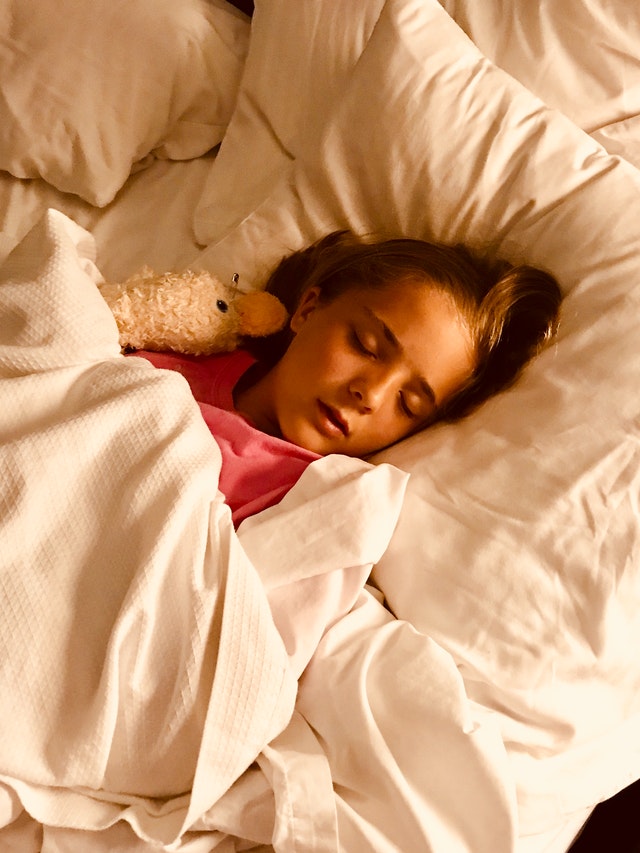How to Help Your 5-8 Year Old Sleep Better
Sleep for your school aged child is very important. When your child sleeps well, they’re more settled, happy and ready for school the next day. It also helps with behavior, learning, concentration and it can boost their immune system. It also helps them grow. Did you know that children’s bodies produce growth hormones when they’re asleep?
How much sleep does my child need?
- A child aged 5-8 yrs need about 10-11 hours of sleep per night.
- A child aged 9-12 yrs will need about 9-11 hours of sleep per night.
If your child isn’t getting this much sleep, there are a few things you can do to establish good sleeping habits and help your child sleep better and longer.
Sign Up For Our Newsletter
Maintain a consistent schedule
In order to set or maintain your child’s internal clock, it’s a good idea to keep bedtime and morning wake up time the same when you can. We understand that holidays and vacation might mean going off schedule a bit, so try to follow the 80/20 rule and get back on track as soon as you can.
When you are off schedule, don’t hesitate to make bedtime a little earlier for a few nights to help chip away at the sleep debt. It is amazing what 15-30 mins extra for a few days will do!
Maintain a consistent bedtime routine
A consistent bedtime routine signals to the body that it is time to sleep and helps with the production of melatonin (our sleep hormone). Your routine doesn’t have to be complicated, simply a series of things that you do, preferably around the same time each night. For school aged children, this might include reading a book together, writing in a journal or a chatting about their day.
Here are 7 fun bedtime activities to connect with your child.
Set up a positive sleep environment
Take a look around your child’s room, and check the temperature. We all sleep better in a cooler environment, and suggest keeping the room between 20 & 22°C / 68 – 72°F. Make the room as dark as you can (darkness helps with that production of melatonin as well). If your child requests a nightlight, try to find something in warm hues (red, orange, dark yellow) and aim for 4 watts or less. Some school aged kids also use white noise to help decrease the sounds heard outside their bedroom at night.
Turn off tech at least 60 minutes before bed
This is a tricky one, and we would love it if you could turn it off 2 hours before bed, but we have to be realistic. If kids have homework, try to do it before dinner so that they aren’t on the computer and thinking about school afterwards. Often families want to watch shows, some play video games after school, and that is okay, but remove it from the bedroom, and try to turn it off at least 60 minutes before lights out.
Try a family docking station outside of the bedrooms!
Snoring or mouth breathing
If your child snores, mouth breathes, tosses and turns a lot or sweats excessively overnight, it’s a good idea to speak with your doctor. This may signify something medical is affecting your child’s sleep, like sleep apnea. A doctor can help make the appropriate diagnosis and referrals to ensure that there isn’t something else affecting your child’s sleep.
As with all things, make sure you remain consistent with any changes you make. It can take time to adjust to a new way of doing things, but it will pay off in the end when they are star sleepers.
If, after all of these changes, your child is still struggling to fall asleep and stay asleep or if they seem overly tired in the morning, book a free discovery call with one of our consultants. We can help you all sleep better!










